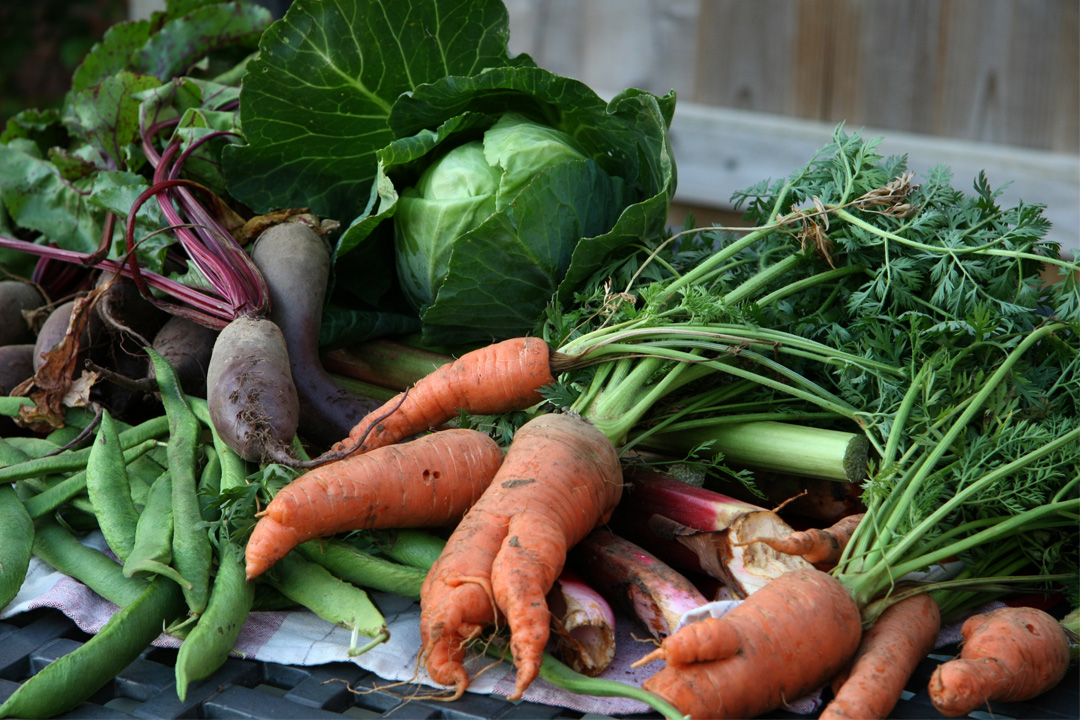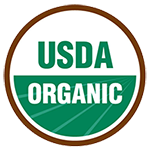
Reducing Food Waste in Foodservice
October 16, 2018 by Doreen Garelick, Dietetic Intern
Our intern Doreen attended a food waste summit for restaurants and compiled these tips to help food service operators redirect…
Nutrition 101
April 13, 2015

Beyond reasons to satisfy their taste buds, for some consumers, food choices are driven by their cultural, religious, and ethical values. Food companies have been adapting their marketing strategies to this growing breed of consumers by using visuals alluding to meadows and happy animals roaming the countryside. Labels such as “all natural,” “fresh,” “cage-free,” and “organic” are included on food packages and often give the product a health halo.
What do all these labels mean and how are these terms regulated? Over the next few weeks, Dietetic Intern Amy Vu will discuss different food labels and their meanings to help you be a informed shopper.
Part 1. Organic Food: Do I Really Need to Buy Organic?
The first topic of our Savvy Consumer series is the ubiquitous “organic” food label. Organic foods can cost up to twice as much as conventionally grown products. What should you consider when buying organic?
What is Organic?
The term organic refers to how the food was grown and processed. According to the USDA, “organic” products preserve the environment and avoid using synthetic fertilizers, sewage sludge, irradiation, and genetic engineering. In general, organic growing methods promote environmental sustainability by using practices that foster cycling of resources, promote ecological balance, and conserve biodiversity.
Types of Organic Labels

What Are the Potential Benefits?
There is conflicting research regarding whether or not organic foods uniformly contain higher nutritional value, however, there are some studies that have shown higher polyphenol content in organic foods. It is thought this is because plants grown without pesticides produce their own phytochemicals for protection against pests.
What Should I Consider When Buying Organic?
As a rule of thumb, if you are going to eat the skin of a product, then it may be worth buying organic. Also, vegetables with delicate skin such as leafy greens are more difficult to clean pesticides off.
Annually, the Environmental Working Group (EWG) puts together a list of produce with the highest pesticide load called the Dirty Dozen. This resource can be a useful guide if you want be selective about which organic produce you purchase.
For 2015, the EWG added a Dirty Dozen Plus category which includes hot peppers and a few dark leafy greens, since these contain particularly toxic residues (however the number and concentration of pesticides is not high enough to be added to the Dirty Dozen list). EWG recommends purchasing these organic or cooking the product when purchased conventionally, since cooking decreases the amount of pesticides.
The Clean Fifteen lists produce with the least amount of pesticide content. So if you're looking to minimize pesticides, these items may be purchased as conventional if organic is unavailable or too expensive.

(Image source: Ecowatch)
The Verdict
Organically grown produce helps maintain soil integrity, preserve the environment, and would contain less synthetic pesticides. However, the term “organic” does not immediately mean a product is healthy or locally sourced. As Marion Nestle says, “Organic junk food is still junk.” When buying organic snack foods, check the ingredients to make sure no preservatives or chemicals have been added. Food companies may use this organic label to attract consumers to buy their product. Always read the nutrition label before buying a product!
Keep in mind that the USDA Organic certification process costs money. It is possible for small, local farms to have rich and sustainable farming practices but not be Certified Organic. When choosing fresh produce, a better option may be to purchase from your local farmers’ market. You can communicate with the farmer and know exactly where your food is coming from and how it was grown. The produce is likely fresher and more nutritious if it was more recently harvested.
The bottom line: Organic or not, fruits and vegetables provide essential vitamins and minerals to support our health and protect against chronic disease. Purchase organic foods when feasible, but don’t skip out on them if they aren’t organic.
What are your thoughts on organic foods? Please feel free to drop a comment or question down below. Next up, we will discuss what “all natural” means so stay tuned!

October 16, 2018 by Doreen Garelick, Dietetic Intern
Our intern Doreen attended a food waste summit for restaurants and compiled these tips to help food service operators redirect food waste from landfills.
Nutrition 101

Nutrition 101
September 26, 2018 by Doreen Garelick, Dietetic Intern
Ever notice headlines about rapid weightloss? Dietetic Intern Doreen Garelick looks deeper into a recent eye-catching headline to see if there's any truth behind it.
Connect
 Follow us on Twitter
Follow us on Twitter Friend us on Facebook
Friend us on Facebook Follow us on Pinterest
Follow us on Pinterest Follow us on Instagram
Follow us on Instagram Read our Blog
Read our Blog Watch videos on YouTube
Watch videos on YouTube Watch videos on Vimeo
Watch videos on Vimeo Connect with us on Linkedin
Connect with us on Linkedin Find us on Foursquare
Find us on Foursquare
Tweets by @SPEcertifiedBlog Search
Categories
SPE Certified Newsletter
Sign up for news on the latest SPE-certified venues, events and SPE updates.
We will never share your personal information with a third party.